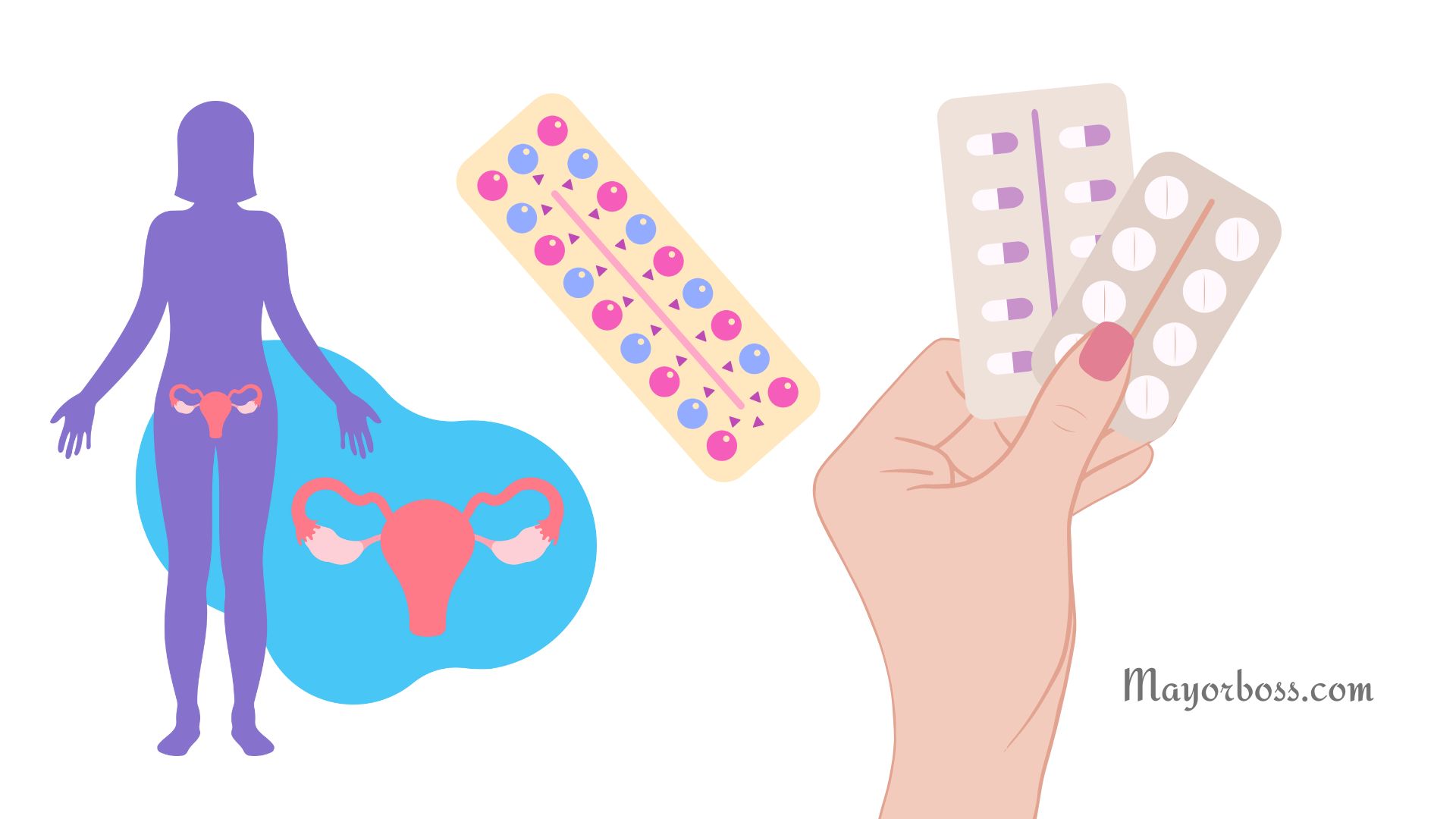Birth Control Pills
Birth control pills, also known as oral contraceptives, play an instrumental role in managing your sexual and reproductive health. They’re more than just a pregnancy prevention tool – they help regulate menstrual cycles, treat hormonal imbalances, and can even alleviate symptoms of certain conditions such as polycystic ovary syndrome (PCOS).

What are Birth Control Pills?
Birth control pills are daily medications that contain hormones, estrogen, and progesterone, which prevent pregnancy. They are typically prescribed to people assigned female at birth (AFAB), including cisgender women, transgender men, and nonbinary individuals. These pills work mainly by stopping ovulation and changing the lining of the uterus to prevent sperm from reaching an egg.
Types of Birth Control Pills
There are several kinds of birth control pills:
- Combination pills: These contain both estrogen and progestin, a synthetic version of progesterone. They can be further divided into monophasic, biphasic, or triphasic pills, depending on whether the hormone dose stays the same or changes throughout your cycle.
- Progestin-only pills: Known as the “mini-pill,” these are a good option if you can’t take estrogen for health reasons.
- Extended-cycle pills: These allow you to have fewer periods, such as only four times a year, or eliminate them altogether.
Here’s an example of a table outlining different types of birth control pills:
| Type of Pill | Brand Name Examples | Hormones Used |
|---|---|---|
| Monophasic Combined Pill | Sprintec, Yasmin, Loestrin | Estrogen and Progestin |
| Biphasic Combined Pill | Ortho-Novum, Mircette | Estrogen and Progestin |
| Triphasic Combined Pill | Ortho Tri-Cyclen, Enpresse | Estrogen and Progestin |
| Quadriphasic Combined Pill | Natazia | Estrogen and Progestin |
| Low-Dose Pill | Lo Loestrin Fe, Ortho Tri-Cyclen Lo | Estrogen and Progestin |
| Extended Cycle Pill | Seasonale, Seasonique | Estrogen and Progestin |
| Progestin-Only Pill (Mini-Pill) | Micronor, Nora-BE | Progestin |
| Chewable Pill | Femcon Fe, Ogestrel | Estrogen and Progestin |
| Emergency Contraceptive Pill | Plan B One-Step, Ella | Levonorgestrel or Ulipristal Acetate |
The Role of Birth Control Pills in Reproductive Health
Birth control pills, like the hormones they contain, send messages to your body to regulate your sexual and reproductive health.
Preventing Pregnancy
Oral contraceptives prevent pregnancy by stopping your ovaries from releasing an egg. They also thicken cervical mucus, making it more difficult for sperm to navigate to an egg.
Regulating Menstrual Cycles
If your periods are irregular, birth control pills can help make them more predictable by keeping your hormone levels steady throughout the month.
Treating Hormonal Conditions
Some conditions, like PCOS or endometriosis, can be managed with birth control pills. They can reduce symptoms such as heavy periods, acne, and unwanted hair growth.
Birth Control Pills and Non-Reproductive Health
Beyond reproductive health, birth control pills can have a positive impact on other areas of your health.
- Reducing the risk of ovarian and endometrial cancer.
- Managing acne by reducing the levels of hormones that cause oil buildup in the skin.
- Preventing bone loss by providing a steady supply of estrogen.
- Helping with symptoms of premenstrual syndrome (PMS) and premenstrual dysphoric disorder (PMDD).
Where do Birth Control Pills Act in the Body?
The hormones in birth control pills act mainly on your reproductive system, particularly the ovaries and the uterus. However, as these hormones circulate throughout your body, they can also influence other systems.
Potential Side Effects and Risks
While birth control pills are safe for most people, they can cause side effects and carry certain risks, as Family Doctor Natalia Hapych explains.
Some common side effects include:
- Nausea.
- Headaches.
- Slight weight gain.
- Mood changes.
- Breast tenderness.
Risks, although rare, can include blood clots, heart attack, stroke, and liver tumors.
Monitoring and Care
Before starting on birth control pills, you should discuss your medical history and any concerns with your doctor. Regular follow-up appointments are important to ensure the medication is working properly and not causing any adverse effects.
To maintain the effectiveness of birth control pills:
- Take your pill at the same time each day.
- Do not skip doses.
- Use backup contraception if you miss a pill or take one late.
You should also lead a healthy lifestyle, which includes managing stress, getting enough sleep, exercising regularly, and maintaining a balanced diet.
One thing to keep in mind is that birth control pills don’t protect against sexually transmitted infections (STIs). Use condoms for STI protection.
All in all, birth control pills are a reliable contraceptive method that also provides several health benefits. While they can cause side effects, most people tolerate them well. Always communicate with your healthcare provider, such as a gynecologist, about your needs and concerns. This will help ensure you get the most out of your birth control pills.
Further Reading: Can You Still Get Pregnant If You’re on the Pill?
